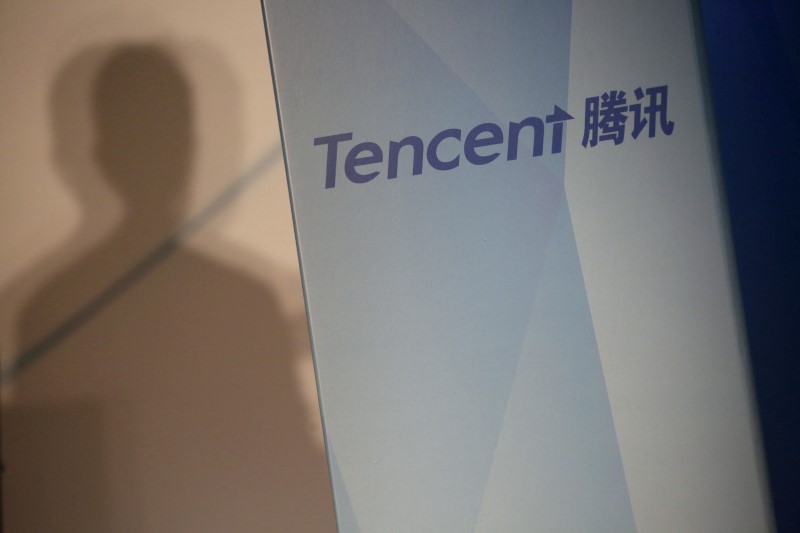This post was originally published on this site
https://i-invdn-com.investing.com/trkd-images/LYNXMPEIAF0C6_L.jpg
HONG KONG (Reuters) -Tencent Holdings said on Wednesday it would distribute its $20.3 billion stake in food delivery firm Meituan in dividend, as it reported a second straight quarterly sales drop, hit by economic slowdown and China’s regulatory crackdown.
The divestment plan, which Reuters reported in August, comes as the Shenzhen-based tech giant retrenches, shutting some unprofitable businesses and laying off staff in a bid to return to growth.
China’s sweeping regulatory crackdown on technology heavyweights, which started in late 2020, has ended the industry’s giddy growth, as it took aim at their sprawling empire built through acquisitions and domestic concentration of market power.
Tencent, the world’s largest video game company and the operator of the WeChat messaging platform, said its revenue fell by 2% to 140 billion yuan ($19.8 billion) for the three months that ended Sept. 30, a second straight quarterly drop. It also missed analysts’ average forecast of 141.6 billion yuan.
Up to the previous quarter, Tencent reported double digit growth for almost every three-month reporting period since it went public in 2004, but its expansion has been halted by China’s crackdown on the tech industry that began in late 2020.
Charlie Chai, an analyst at 86 Research, said revenue was weak as expected, but Tencent’s margin improvement, driven by cost cutting, was a surprise.
“A lean operation combined with potential revenue acceleration is a good setup that investors will like. I expect more investors to take a fresh look at the stock and potentially add positions.”
Shares in Tencent closed up 2.22% prior to the earnings announcement. Tencent has lost nearly 60% of its market value since a peak in February 2021.
SPECIAL DIVIDEND
Tencent said it will transfer 958.12 million shares in Meituan, representing approximately 15.5% of the total number of issued shares of Meituan. Tencent owns 17% of the food delivery company.
Meituan said it and Tencent would maintain their mutually beneficial business relationship after the stake sale.
“Tencent has already distanced itself from Meituan. Given the anti-trust environment, all investment stakes, even if strategic by intention when the deal was done, are now financial. I guess all major stakes will eventually be distributed or sold,” Chai said.
Tencent has been reducing holdings in portfolio companies partly to appease the Chinese regulators and partly to book hefty profits on those bets, sources have said.
In December, it announced the divestment of about 86% of its stake in JD (NASDAQ:JD).Com Inc, worth $16.4 billion, weakening its ties to China’s second-biggest e-commerce platform.
Besides Meituan, Tencent also holds stakes in e-commerce company Pinduoduo (NASDAQ:PDD) Inc, video platform Kuaishou, ride-hailing champion Didi, electric vehicle maker Tesla (NASDAQ:TSLA) and streaming service Spotify (NYSE:SPOT).
GAMES HIT
Demand for video games, a key revenue source for Tencent, remained weak in the quarter, as it has not received publishing approval for any commercial game for more than a year.
A Tencent subsidiary obtained a license in September but it was for an educational game with no monetization.
Domestic gaming revenue shrank 7% to 31.2 billion yuan, while international gaming revenue rose 3% to 11.7 billion.
Online advertisement sales also declined by more than 5% to 21.5 billion yuan, as advertisers tightened budgets in a weak economy.
Net profit rose 1% to 39.9 billion yuan, ahead of an average estimate by analysts of 25.6 billion yuan.
In the third quarter, the number of Tencent employees fell by 1,875 to 108,836 as of end-September. The second quarter’s number was already down by 5,498, or nearly 5% from the first quarter. Reuters reported on Tuesday that the company has begun a new round of job cuts targeted at its video streaming, gaming and cloud units. Reuters was not able to establish the scale of the job losses.


